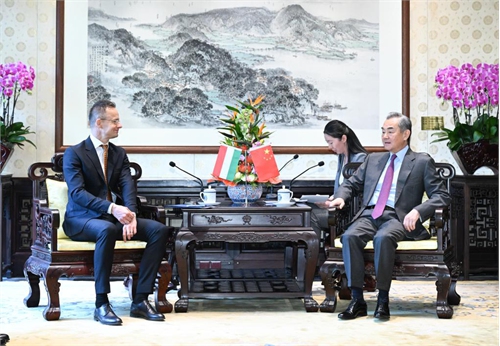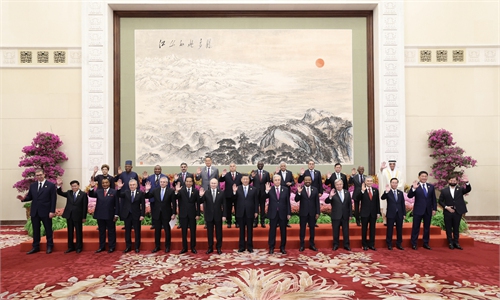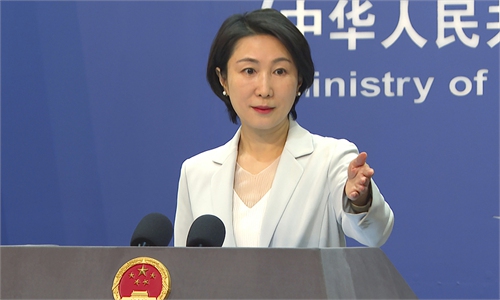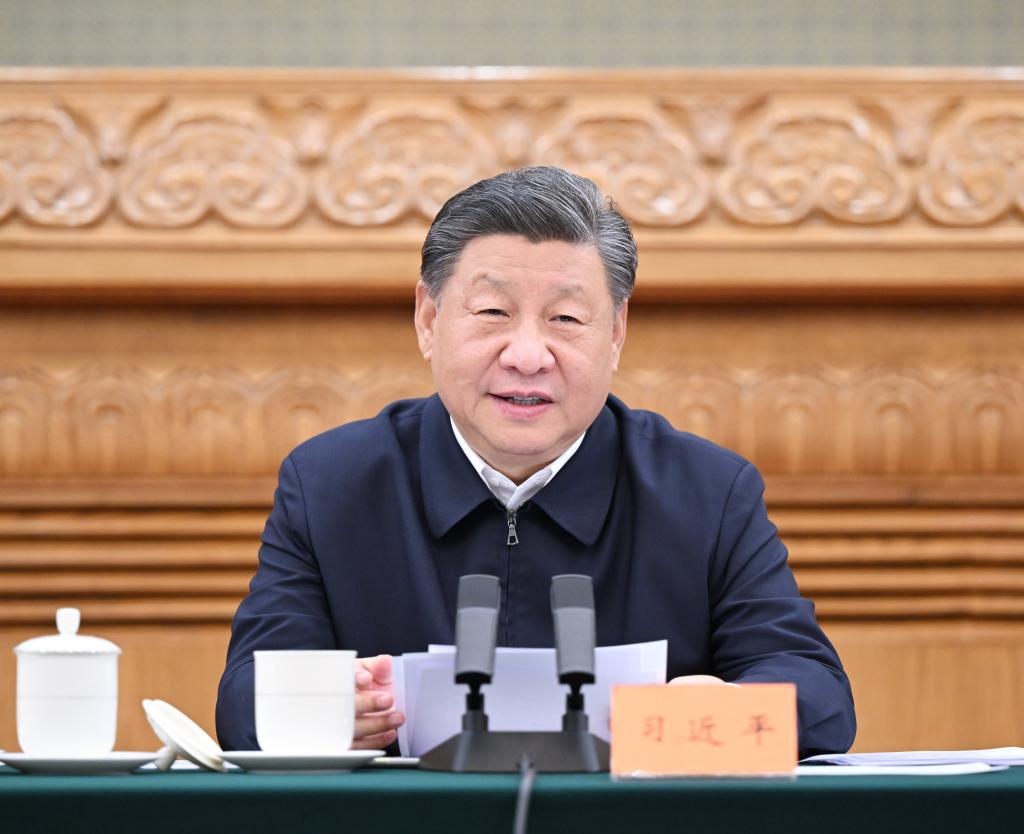
Chinese President Xi Jinping, also general secretary of the Communist Party of China Central Committee and chairman of the Central Military Commission, addresses a symposium on the development of the Belt and Road Initiative (BRI), in Beijing, capital of China, Dec. 2, 2024. (Photo: Xinhua)
Xi, also general secretary of the Communist Party of China Central Committee and chairman of the Central Military Commission, made the remarks when addressing a symposium on BRI development, according to the Xinhua News Agency on Monday.
It is imperative to strengthen strategic confidence, maintain strategic focus and act courageously with a sense of responsibility to create a brighter future for Belt and Road cooperation, Xi said.
Since the initiative was put forth in 2013, major achievements have been made in Belt and Road cooperation, which contributed to enhancing China's friendship with participating countries and promoting their economic and social development, Xi said.
Noting that the world has entered a new period of turbulence and change in recent years, he urged efforts to appropriately manage all types of risks and challenges and effectively address the impact of geopolitical conflicts while advancing high-quality Belt and Road cooperation.
It is necessary to properly handle the relationship between strengthening participating countries' sense of fulfillment and ensuring the benefits for China, Xi said, while calling for concrete measures to safeguard China's overseas interests.
Xi consecutively proposed building the Silk Road Economic Belt and the 21st Century Maritime Silk Road in 2013. The pairing later came to be known as the BRI.
For more than a decade, China has worked hand in hand with various parties to promote the initiative as a widely welcomed international public good and cooperation platform. Today, the BRI has evolved from ideas into actions and from a vision into reality.
Li Haidong, a professor at China Foreign Affairs University, hailed the BRI as "a remarkable success," not only in establishing a connected network along its route but also through the implementation of numerous infrastructure projects. "This initiative has fostered mutual understanding and shared benefits, creating a positive framework for cooperative development, and contributing to the establishment of an open and inclusive international order," Li told the Global Times.
The BRI has had a profound impact on local communities. Infrastructure development, high-speed rail operations, increased goods circulation, and growing personnel exchanges have brought new hope and opportunities, raised local incomes and enhanced people's expectations for the future, the expert said on Monday.
Uniting for Global Progress
2024 marks the beginning of the second decade of the BRI cooperation. Since the beginning of this year, the "circle of friends" participating in the initiative has been expanding, and its value furthermore increasing. It has opened up a path of development and prosperity that benefits the world, painting a magnificent picture of jointly building a community with a shared future for mankind, China Central Television (CCTV) reported on Monday.
In the past few days, a shipment of cars and various goods from China rolled into Chancay Port in Peru, while at the same time, colorful baskets brimming with Peru's blueberries and avocados are making their way into China.
Such lively exchanges are the result of a flagship project signed under BRI cooperation framework between China and Peru, as the two sides inaugurated the Chancay Port half a month ago that further enhanced long-standing, deep connections between the two countries. With the opening of the port, the one-way shipping time between China and Peru is reduced to 23 days, saving over 20 percent in logistics costs and creating more than 8,000 direct jobs in Peru each year, according to CCTV.
During Xi's recent trip to Latin America, China and Brazil decided to establish synergies between the BRI and Brazil's own development strategies, focusing on expanding and deepening cooperation in areas such as sustainable development, infrastructure, finance, energy transition, and aerospace. This marks the comprehensive expansion of the BRI's international cooperation framework in the Latin American region.
Throughout the 11 years, international cooperation under the BRI has flourished, witnessing the completion of a number of landmark projects one after another, such as the China-Laos railway, the Budapest-Belgrade railway, and the Jakarta-Bandung high-speed railway, CCTV reported.
Thanks to the joint construction of BRI, the Maldives now has its first cross-sea bridge, villagers in drought-stricken areas of Senegal have more reliable access to drinking water, and the Padmo Para Village in Bangladesh ended their history of living without electricity ... These "small yet smart" projects have taken roots over the decade, bringing unimaginable benefits to local people's livelihoods, said the CCTV report.
Currently, over 200 cooperation documents have been signed with more than 150 countries and over 30 international organizations. This year, the "Silk Road Maritime" added 10 new lines, now reaching 145 ports in 46 countries and regions; the "Air Silk Road" is also expanding rapidly, covering over 200 cities worldwide. The China-Europe Railway Express (CRE) is running more frequently, with cumulative operations exceeding 100,000 trains, creating a service network that essentially covers the entire Eurasian continent, the CCTV report said.
The World Bank has estimated that by 2030, BRI-related projects and investments could lift 7.6 million people out of extreme poverty and 32 million others out of moderate poverty.
Empowering the Global South
"Belt and Road cooperation is based on the belief that flame runs high when everyone adds wood to the fire and that mutual support can get us far. Such cooperation seeks to deliver a good life not only to people of just one country, but to people in other countries as well," Xi said at the opening ceremony of the third Belt and Road Forum for International Cooperation in October last year.
Ideological confrontation, geopolitical rivalry and bloc politics are not a choice for us, noted Xi. "What we stand against are unilateral sanctions, economic coercion and decoupling and supply chain disruption."
Media reported that Michele Geraci, former undersecretary of state at the Italian Ministry of Economic Development, praised the BRI as a typical example of how China shares its prosperity with the rest of the world at a forum held in Beijing in November.
The attack on China by Western powers is an attempt to not only hinder its cooperation with other developing countries, but also keep the developing world "poor, heavily indebted and dependent," Geraci said. "In contrast, China has championed a new kind of international relations featuring win-win cooperation, mutual respect and equal partnership."
"In BRI cooperation, China emphasizes the principles of consultation, joint contribution, and shared benefits. Through collaboration with partner countries, China has encouraged them to pursue independent development," Wang Yiwei, a professor at the Renmin University of China in Beijing, told the Global Times.
Furthermore, China has brought the results of years of agricultural and industrial revolutions to partner countries, helping them bypass obstacles and achieve leapfrog growth, while avoiding reliance on the technologies and models of developed countries.
China also promotes green development and digital transformation. The digital industrialization and green energy projects under the BRI provided new development models for the Global South, the expert added.
Regarding the accusations from Western media of so-called debt traps and China's expansionism, Wang said it primarily stems from a projection of their own thoughts. "They have done this in the past and assumed China would act the same, not understanding that China's cultural values, political system, and implementation of the BRI are fundamentally different. If China's approach were the same as theirs, how could so many countries rush to join? Facts speak louder than words," Wang said.
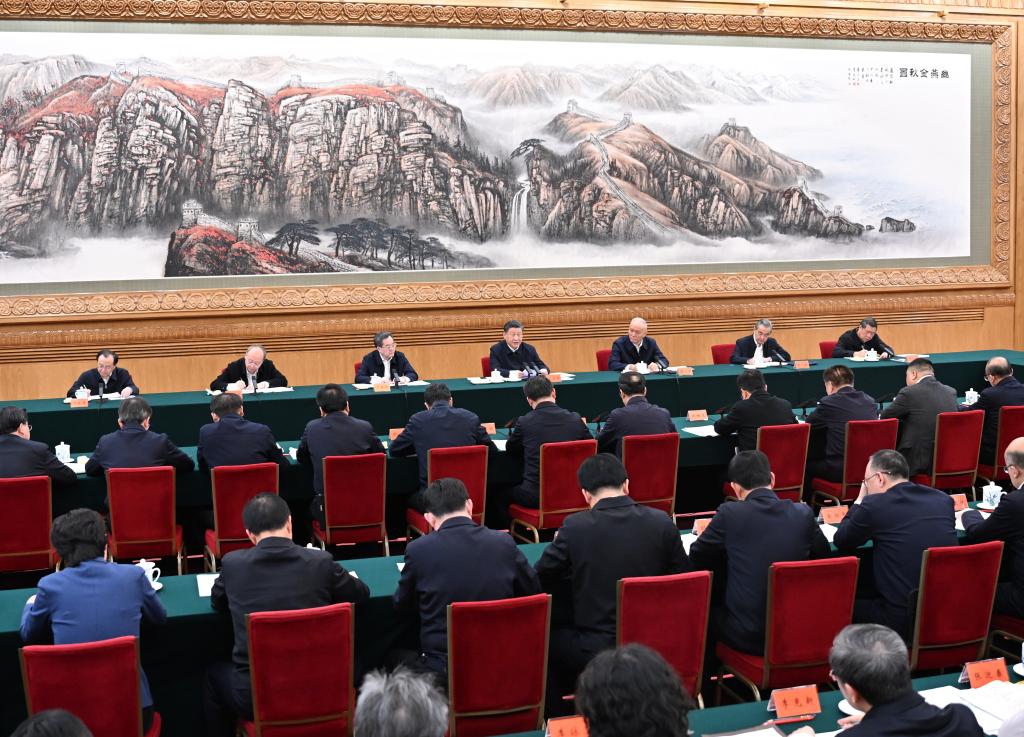
Chinese President Xi Jinping, also general secretary of the Communist Party of China Central Committee and chairman of the Central Military Commission, addresses a symposium on the development of the Belt and Road Initiative (BRI), in Beijing, capital of China, Dec. 2, 2024. (Photo: Xinhua)
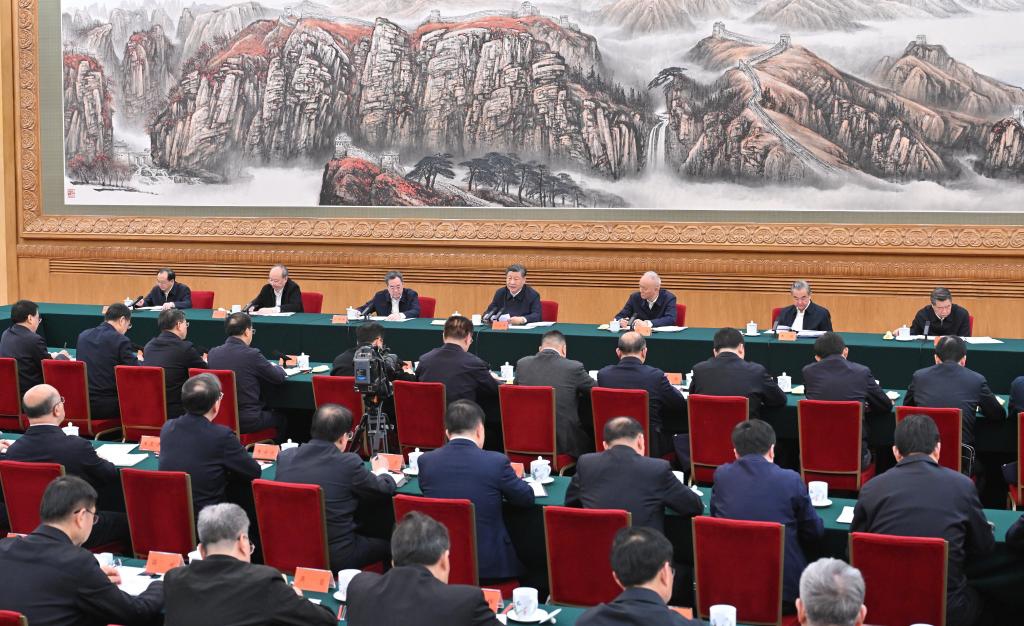
Chinese President Xi Jinping, also general secretary of the Communist Party of China Central Committee and chairman of the Central Military Commission, addresses a symposium on the development of the Belt and Road Initiative (BRI), in Beijing, capital of China, Dec. 2, 2024. (Photo: Xinhua)
